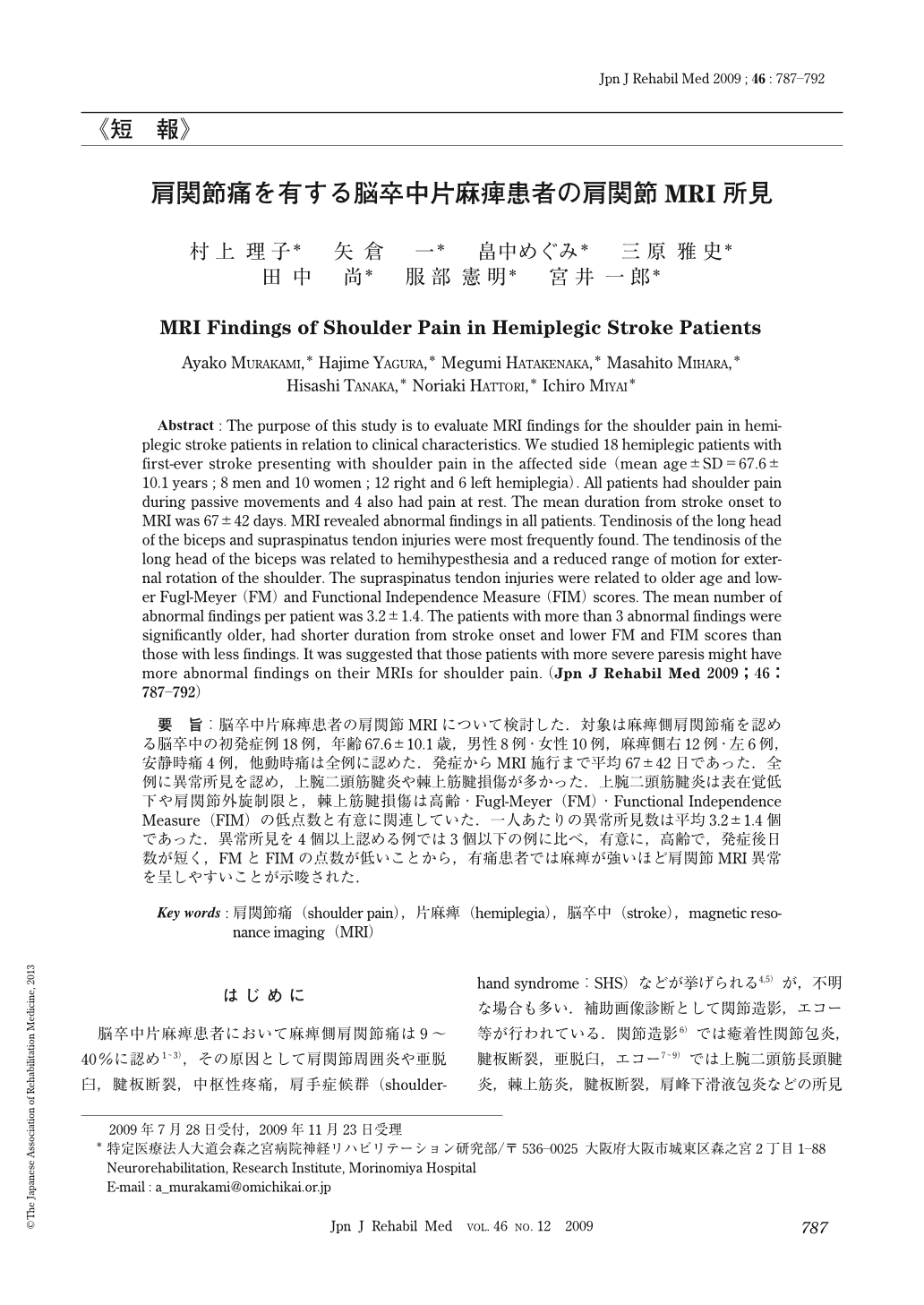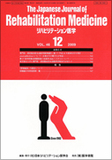Japanese
English
- 販売していません
- Abstract 文献概要
- 1ページ目 Look Inside
- 参考文献 Reference
要旨:脳卒中片麻痺患者の肩関節MRIについて検討した.対象は麻痺側肩関節痛を認める脳卒中の初発症例18例,年齢67.6±10.1歳,男性8例・女性10例,麻痺側右12例・左6例,安静時痛4例,他動時痛は全例に認めた.発症からMRI施行まで平均67±42日であった.全例に異常所見を認め,上腕二頭筋腱炎や棘上筋腱損傷が多かった.上腕二頭筋腱炎は表在覚低下や肩関節外旋制限と,棘上筋腱損傷は高齢・Fugl-Meyer(FM)・Functional Independence Measure(FIM)の低点数と有意に関連していた.一人あたりの異常所見数は平均3.2±1.4個であった.異常所見を4個以上認める例では3個以下の例に比べ,有意に,高齢で,発症後日数が短く,FMとFIMの点数が低いことから,有痛患者では麻痺が強いほど肩関節MRI異常を呈しやすいことが示唆された.
Abstract : The purpose of this study is to evaluate MRI findings for the shoulder pain in hemiplegic stroke patients in relation to clinical characteristics. We studied 18 hemiplegic patients with first-ever stroke presenting with shoulder pain in the affected side (mean age±SD=67.6±10.1years ; 8 men and 10 women ; 12 right and 6 left hemiplegia). All patients had shoulder pain during passive movements and 4 also had pain at rest. The mean duration from stroke onset to MRI was 67±42 days. MRI revealed abnormal findings in all patients. Tendinosis of the long head of the biceps and supraspinatus tendon injuries were most frequently found. The tendinosis of the long head of the biceps was related to hemihypesthesia and a reduced range of motion for external rotation of the shoulder. The supraspinatus tendon injuries were related to older age and lower Fugl-Meyer (FM) and Functional Independence Measure (FIM) scores. The mean number of abnormal findings per patient was 3.2±1.4. The patients with more than 3 abnormal findings were significantly older, had shorter duration from stroke onset and lower FM and FIM scores than those with less findings. It was suggested that those patients with more severe paresis might have more abnormal findings on their MRIs for shoulder pain.

Copyright © 2009, The Japanese Association of Rehabilitation Medicine. All rights reserved.


